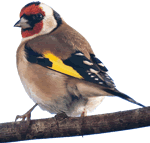A story I heard when I was in Ireland featured two characters playing na cnaipí (tiddlywinks) /nə kripiː/ in a graveyard at night. A man who overheard them sharing out the tiddlywinks, saying over and over “one for me and one for you”, and thought they were the devil and god sharing out souls.
When I first heard the story I didn’t know what na cnaipí were, but later disovered that they are buttons or tiddlywinks. The singular of the word is cnaipe /kripə/ or /knapə/* and it means button, knob, key or dot, and can refer to buttons on clothes and to buttons (and keys and knobs) on keyboards and other electronic software and hardware.
* in some dialects of Irish, such as in Ulster and Connemara, cn is pronounced /kr/ while in others it’s pronounced /kn/
Today I discovered some similar-sounding Welsh words, cripio (to scratch) and cripiad (scratch), and wondered if they were related to the Irish cnaipe.
According to Dennis King, cnaipe comes from the Middle Irish cnap, from the Old Norse knappr (button, knob), from the Germanic *kn-a-pp-, from the Indo-European root *gen- (to compress into a ball), which is also the root of the English words knob and knoll, and the Scottish Gaelic word cnap (knob, lump, hillock).
As far as I can discover, there is no link between cnaipe and cripio – their resemblance is a chance one, something you find quite often when comparing languages.


